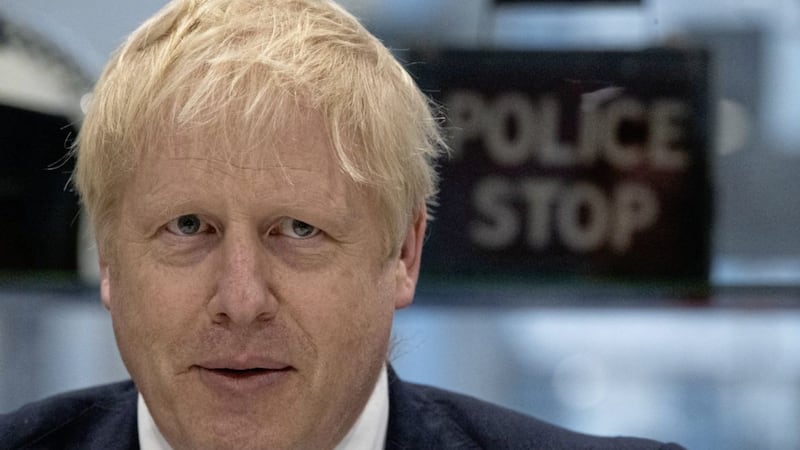How did we end up in the situation in which unionism is being encouraged to unite behind a campaign to protect Northern Ireland from the consequences of a Brexit deal supported by the DUP's confidence and supply partner?
It's an important question. It's a question which requires an answer. The answer is pretty straightforward: Boris Johnson lied to the DUP, the ERG abandoned it, the Conservative Party rowed in behind a deal it knew would unsettle unionism and Arlene Foster and Nigel Dodds were left to swing in the wind. It's clearly not an answer unionism wants to hear; but it is the only answer which stacks up.
Here's another question which requires an answer. What happens when Steve Aiken - due to take over the leadership of the UUP on Saturday - points out that the DUP's strategy and supposed influence has, in fact, jeopardised the Union; and that the UUP will offer an alternative electoral choice to unionism by fielding candidates in every constituency, including North Belfast?
Well, we now know the answer to that question: members of his party joined in the call to rally behind Nigel Dodds, while the PSNI confirmed that it is investigating alleged threats made to individuals linked to the UUP.
There is no-one within unionism, and I really do mean no-one, arguing that there isn't, at present, a serious problem for the Union. And nor is there anyone within unionism arguing that Boris Johnson hasn't betrayed/let down all of unionism in Northern Ireland. Many of us cautioned the DUP about putting too much faith in Johnson.
Yet not one word from the DUP that it might have got it wrong in its dealings with him. Not one word, either, about what the strategy will be if, after the election, Johnson emerges with a comfortable majority, determined to get his deal, complete with the border stuff, pushed through as quickly as possible. Indeed, it's hard to avoid the conclusion that the DUP is quietly praying for an outcome in which it is Labour which will be calling the shots from December 13 onwards. If Johnson wins a comfortable majority and ploughs ahead with his deal, unionism has a problem.
There is a tendency in some quarters to blame everyone else for the present mess in which unionism finds itself. But maybe we just need to face the fact that we remain as misunderstood and as uncared-for as we were when the DUP concluded the confidence and supply deal in June 2017.
Thirty months later and we clearly have few friends in Westminster, let alone valued, trusted friends in high places. Parliamentary arithmetic gave the DUP the delusion of influence: that same arithmetic might, in a few weeks time, present them with the reality of their real weakness.
Yet all of this raises some very difficult questions for unionism: the precise nature of the relationship between 'Ulster' unionism and a new form of English nationalism (which isn't actually UK unionism anymore); the role of unionism in Northern Ireland at a time when there are so many problems to be resolved; and, 18 months from its centenary, the survival and future of Northern Ireland. Another question, of course: why has unionism been let down yet again by a Conservative government - in this case, twice within two years?
And why, when the political/electoral circumstances are so different, are some elements of unionism and loyalism harking back to the strategies and propaganda tactics first deployed over a century ago? The Conservative leader Bonar Law claimed that there were no lengths unionism in 'Ulster' could go that he wouldn't defend it. The intervention of World War I meant that he was never tested on that promise. Today, there is no Conservative leader, or any other national party leader who would say such a thing.
Which means that it isn't a time to rattle cages and make what are, to all intents and purposes, empty threats. A united unionism is not going to declare war on anyone. It can't and it won't. It needs to exercise caution and prepare to make the best of what could be a very uncomfortable moment. Common sense rather than click-bait rhetoric and a re-run of the 'united we stand...' mantras is required.
To paraphrase Lincoln: when you don't have friends, other than in your own camp (which may have divisions of its own), don't go out of your way to make new enemies.








